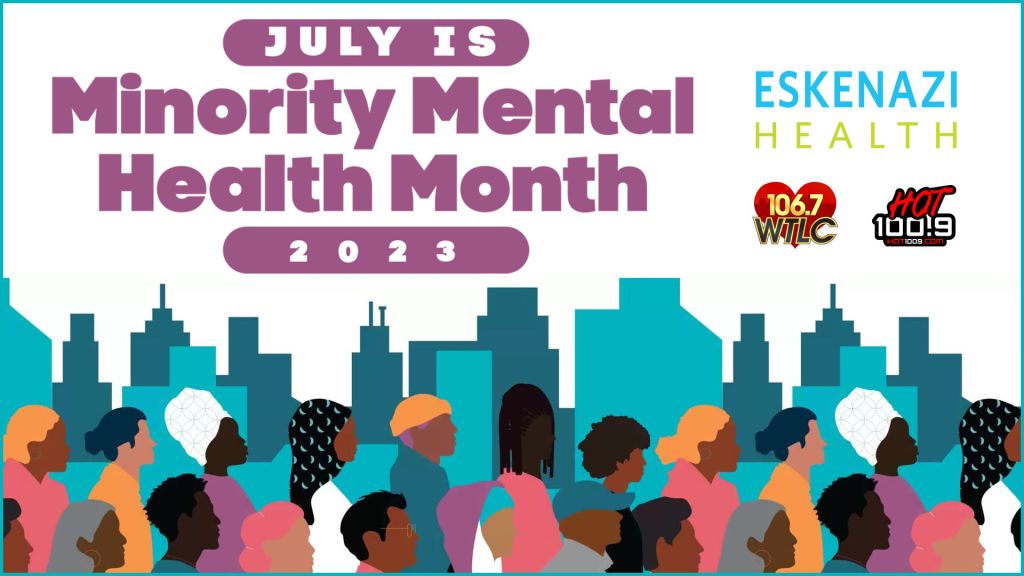
- Date/time: Jul 1 to Jul 31
Join Eskenazi Health and WTLC in spreading awareness for Minority Mental Health Month!
This year, Mental Health America’s BIPOC Mental Health campaign is all about the power of culture, community, and connection for Black, Indigenous, and People of Color (BIPOC).
Learn more 👉 https://mhanational.org/bipoc
Free Mental Health SCREENINGS ▶ mhascreening.org
When we reach out for help, we begin to heal ourselves AND our communities.
❤🧠🩺
If you or someone you know is struggling or in crisis, help is available.
Call or text 988 or chat 988lifeline.org. You can also reach Crisis Text Line by texting MHA to 741741.
BIPOC COMMUNITIES THROUGHOUT HISTORY
• Throughout history, BIPOC communities have carved out culturally responsive spaces that give room for individuals to feel connected with their communities and maintain physical and psychological safety. These spaces of support include cultural hubs, community gardens, community care systems, social clubs, art collectives, sports teams, and more.
• BIPOC communities are rooted in collectivist cultures, which recognize that each person’s health and wellness is deeply interconnected with their community’s. When one person seeks to take care of their mental health, it has an impact on the wellness of the community at large.
CHALLENGES FACED BY BIPOC COMMUNITIES
• Historically, BIPOC populations have been pushed out of their living spaces intentionally and forcefully. Even if a BIPOC individual hasn’t dealt with community displacement in their own lifetime, generational and historical trauma can still impact their current mental health and quality of life.
• Community displacement disproportionately impacts all individuals within BIPOC communities, not just the individuals forced to move. Gentrified neighborhoods see an increase in cost of living, lose small and local businesses, and disrupt community culture and safety.
• Many BIPOC communities have faced forced relocation and removal that has distanced them from their loved ones, cultural practices, languages, and sense of identity. This generational trauma has impacted the ability of BIPOC individuals to access services, feel secure, and have positive mental health outcomes.
IMPORTANCE OF COMMUNITY
• A sense of belonging and inclusion in communities is vital for well-being and mental health. BIPOC individuals may frequently feel othered or as if they are tokenized in spaces in which their identities are not embraced or reflected.
• Community safety is more than just physical. Psychological safety consists of inclusion and the safety to learn, contribute, and challenge the status quo.
• Having a sense of community creates a sense of support and belonging, which can reduce feelings of isolation.
• Community-led spaces are vital sources of belonging that promote overall mental health and wellness. This includes cultural hubs, which are areas of people with a specific cultural background who have come together to live, provide services, or connect with one another.
• Individuals who have strong connections to their communities have better mental health outcomes, including lower rates of suicide, violence, and feelings of isolation.
ADVOCATING FOR MENTALLY HEALTHY SPACES
• No one knows a community better than those within the community itself. In order to move toward a more mentally healthy future, community-led action must be prioritized and sustained.
• There is power in numbers. When individuals get together to unite under a common goal, they increase their chances of enacting change that could promote overall wellness, a sense of purpose, and connection.
• BIPOC communities have always been at the forefront of social change. When advocating for community spaces and resources, it is important to pay homage to the originating communities that have led the way.
• Connection to others may exist either in person, in virtual spaces, or through other means of communication. Recognize that “community” can be more than in-person support and can especially be impactful for those who may be physically isolated from others in their culture.
• Prioritize access for all when advocating for mentally healthy environments. Strong community support requires an overall understanding that every person is deserving of a healthy environment and has a role in the wellness of those around them.











